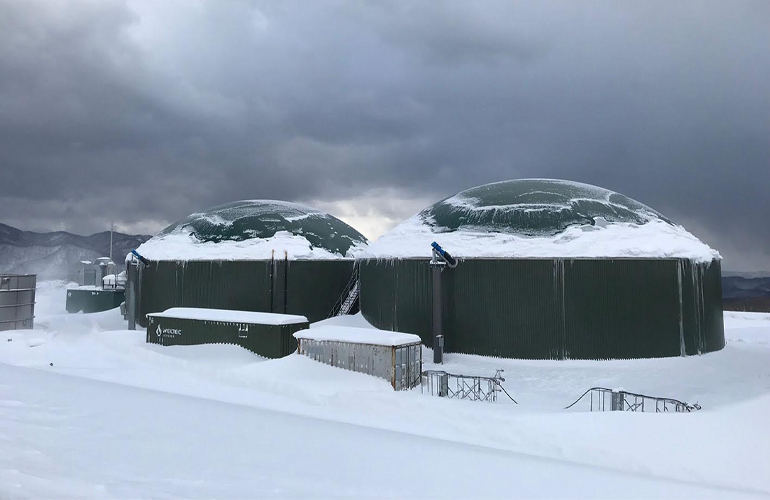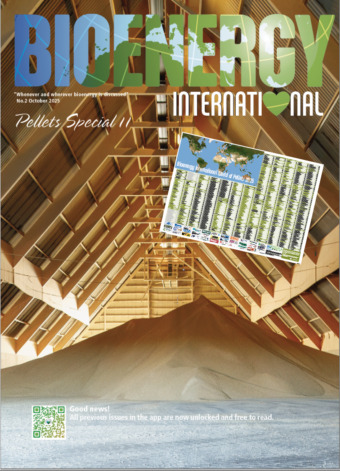Germany-headed biogas specialist Weltec Biopower GmbH has announced orders for two new biogas power plant projects in Japan with a third under planning. According to the company, it can adapt its technical solutions to seismically active areas in the shortest possible time using special structural engineering.
In Japan, cattle and pig farms rely on stable, earthquake-proof building constructions.
Following the installation of several agricultural biogas plants in recent years, not least in earthquake zones in Japan and Greece, the company from Lower Saxony in Germany has now reported an order for a 450-kW plant as well as a 250-kW facility in Yamagata Prefecture, Japan with additional Weltec Blue Water treatment, which is currently being implemented.
In addition, a 450-kW plant for a pig farm near Nagano Prefecture is currently being planned.
A circular valorized material cycle
Two digesters will be used in Yamagata Prefecture to treat the 80 tonnes per day of cattle manure and wastewater from milk production. The biogas will be used exclusively to generate electricity and heat in a 250-kW combined heat and power (CHP) plant.
Weltec’s scope of supply also includes two storage tanks, a pump container, a separation unit and the CHP unit.
Weltec Blue Water
In addition to the biogas plant, a Weltec Blue Water plant with a processing capacity of 50,000 tonnes per annum of digestate from the biogas plant is currently being constructed.
The treatment technology separates the digestate from the biogas plant in a multi-stage process into solid and liquid fertilizer and dischargeable water.
The resulting solid phase offers a wide range of marketing options, such as use as a biofertilizer in the field or as bedding in stables.
This enables the operator to make additional savings on transport costs by reducing the volume of the material to be transported.
The distribution of output materials varies depending on the dry matter content of the fermentation residue.
In this project, the amount of solid fertilizer is around 3 percent, the nutrient concentrate 29 percent and the water 68 percent. Thanks to the sophisticated modular design, the industrial technology can be easily expanded in the future.
A Weltec Blue Water plant in Reichenbach in Vogtland, Germany, was put into operation in March 2024.
Tailored solutions
From 2025, the operators of the 450-kW plant will be filling a mix of 18 tonnes of cattle manure and food waste per day from the surrounding area into their digesters.
Weltec’s innovative modular digester system makes it possible to individually adapt the diameter and height to meet customers‘ volume requirements or local building regulations, such as height restrictions.
Instead of the usual height of 6.30 m, the digesters have been adapted to a height of 5.03 m.
At both plant locations, the electricity is fed into the grid and the heat is utilized for efficient fermentation in the digesters. The digestate from the 450-kW plant is processed in sewage treatment plants near the site before being used as biofertilizer.
A further plant is currently being planned in Nagano Prefecture. The height of the digester is also adapted as a special solution to 05.03 meters and equipped with a capacity of 450 kW.
Weltec Control for quick access
The installed, web-based Weltec Control software gives the Japanese operators quick access to all important system parameters.
The system with its intuitive user interface also simplifies feeding processes thanks to the FellowFeed and GuidoFill functions as well as exportable reports as evidence for banks and authorities.
If faults occur, the company offers operators training and support via remote control. Equipped with this technology and local biomass sources, the projects are exemplary for the economical operation of small biogas plants.



